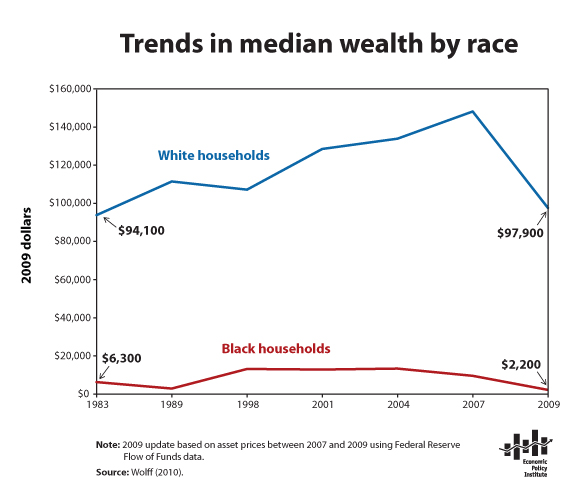July 18 (Reuters) - The European Union (EU) said on Tuesday that Europe’s slave-trading past inflicted “untold suffering” on millions of people and hinted at the need for reparations for what it described as a “crime against humanity”.
From the 15th to the 19th century, at least 12.5 million Africans were kidnapped and forcibly transported by mostly European ships and sold into slavery. Almost half were taken by Portugal to Brazil.
The idea of paying reparations or making other amends for slavery has a long history but the movement is gaining momentum worldwide.
Leaders of EU and the Community of Latin American and Caribbean States (CELAC) met in Brussels this week for a two-day summit.
As the event started on Monday, Ralph Gonsalves, premier of Saint Vincent and the Grenadines, the current holder of CELAC’s presidency, said he wanted the summit’s final statement to include language on the “historical legacies of native genocide and enslavement of African bodies” and “reparatory justice”,
But some European governments were wary of proposed language on reparations, diplomats said.
EU and CELAC agreed on one paragraph that acknowledged and “profoundly” regretted the “untold suffering inflicted on millions of men, women and children as a result of the transatlantic slave trade”.
It said slavery and the transatlantic slave trade were “appalling tragedies … not only because of their abhorrent barbarism but also in terms of their magnitude”. Slavery was a “crime against humanity”, it said.
In the statement, adopted by leaders of both sides, the CELAC referred to a 10-point reparation plan by the Caribbean Community (CARICOM), which, among other measures, urges European countries to formally apologise for slavery.
The plan demands a repatriation programme that would allow people to relocate to African nations if they want to and support from European nations to tackle public health and economic crises. It also calls for debt cancellation.
The CARICOM reparations commission “sees the persistent racial victimisation of the descendants of slavery and genocide as the root cause of their suffering today”, the plan said.
Earlier this month, Dutch King Willem-Alexander apologised for the Netherlands’ historic involvement in slavery and in April King Charles gave his support to research that would examine the British monarchy’s links to slavery.
In Portugal, President Marcelo Rebelo de Sousa said his country should apologise for its role in the transatlantic slave trade but critics said apologies were not enough and practical measures were essential to address the past.
As a Slavic person, I want my reparations for the slavery my ancestors had to endure up to the ~11th century. Or we can all just say “fuck it” and stop pretending like people who never owned slaves owe something to people who never were slaves.
How about we punish the people who actually still own slaves instead?
How about we punish the people who actually still own slaves instead?
This.
I wish ppl would focus on what’s actually happening now, then on what happened centuries ago.
Mind you, I’m not downplaying what happened, just putting the discussion in a broader and more direct context.
According to this site( ILO) there are approximately 50 million slaves. This might be a low estimate.
Edited.
Or we can do both
Apart from the fact that you’re pretending 150 years (with the civil rights legacy still not resolved) is much the same as a whole millennium, you’re also ignoring the substantial differences between the slavery your ancestors endured and the chattel slavery practiced as a result of the transatlantic slave trade.
Chattel slavery meant a lifetime of slavery and children born into slavery, often through rape-for-profit by slaveholders. Enslaved families being ripped apart on a whim if a sale was convenient for their enslaver.
The transatlantic element meant enslaved people were permanently recognisable as slaves.
And the creation of the particular form of racism found in the Americas to prevent poor whites from fraternising with their most natural allies.
This is a terrific read, if you want to educate yourself: I know why poor whites chant Trump, Trump, Trump
An investment in African slaves also ensured a cost-effective, long-term workforce. Female slaves were often raped by their white owners or forced to breed with male slaves, and children born into slavery remained slaves for life. In contrast, white female servants who became pregnant were often punished with extended contracts, because a pregnancy meant months of lost work time. From a business perspective, a white baby was a liability, but African children were permanent assets.
As the number of African slaves grew, landowners realized they had a problem on their hands. Slave owners saw white servants living, working, socializing, and even having babies with African slaves. Sometimes they tried to escape together. What’s more, freed white servants who received land as part of their freedom dues had begun to complain about its poor quality. This created a potentially explosive situation for landowners, as oppressed workers quickly outnumbered the upper classes. What was to prevent freed whites, indentured servants, and African slaves from joining forces against the tyranny of their masters?
I’ll read it later, but to your first point: there was a slave trade route with Slavic people, they were lifetime slaves as well, families ripped apart is nothing new. Really, the only difference is how long ago it was. So why do you draw the line at 150 years?
I didn’t draw any lines. Your English is easily good enough to comprehend what I wrote. If you misunderstood, read it again. If you’re being deliberately obtuse, fuck off.
Apart from the fact that you’re pretending 150 years (with the civil rights legacy still not resolved) is much the same as a whole millennium
This is the part I was reacting to. Sounds to me like drawing a line. Everything else is the same for both slave trades. Or are you being deliberately obtuse? In that case you should heed your own advice.
You’re going to have to explain how you think I’m drawing a line there.
Not agreeing with them, but it sounds like they’re arguing that 150 years is out of living memory in the same way a millennium is.
There are people alive today whose grandparents were born into slavery. Given that slavery did not actually end with the civil war, and Jim Crow, and mass incarceration, and the current dismantling of civil rights era laws, there are hundreds of millions of people alive today who are still directly suffering the aftermath.
So no, it is nowhere out of living memory and I am astonished that there are two people in one place so ignorant that they are willing to argue that it is.
But the direct ripple effects from the transatlantic slave trade are very much not outside of living memory.
Even after being freed, the enslaved demographic was still often seen by others as ‘lesser’, and that got reflected in fewer protections, fewer resources, deferential treatment, fewer opportunities and even outright violence.
For the transatlantic slave trade, those ripples are not only still in living memory, they are actively ongoing in many parts of the western world.
The people are long dead but the states and institutions that benefitted from slavery still exist. Like for example the Netherlands, my country, benefited greatly from the slave trade and it started the Dutch Golden Age. The enormous wealth it brought back to the Netherlands made what the country is today. Even the riches of the Dutch royal family is build with spoils from the colonial past. It’s only fair that the Dutch state would use some of those riches to help the former colonies grow their economy where lots of descendants of slaves are living in enormous poverty. And these people are only four to five generations away from ancestors who were born into slavery, it wasn’t that long ago.
Well, many countries, or their direct descendants, that benefited from Slavic slaves are alive as well.
Then form a movement and demand reparations from those countries. Just because your ancestors didn’t get justice doesn’t mean others shouldn’t.
Nah, the whole point of my comments here is that I’d rather people (and governments in extension) used the money to solve current issues. The past sucks, why keep living in it? Why not use more resources for example to stop current slave trades? Or help with fighting the climate change? Or helping developing nations to get to our level?
But people are still living in it because the ramifications can be still felt today. People in those former colonies are poor because the state sanctioned privateers wreaked havoc in those countries. How is aiding in combatting economic crisis in those countries not helping developing nations?
How are those countries no already revisiting millions in international aid? How are they not already being aided to combat economic crisises?
It’s not like throwing more money at these poor shitholes will solve a thing when some local warlord or corrupt politician will pocket it all and continue to keep their own people down.
The past happened, we can’t ignore it. Acknowledging that injustices happened in the past and we have the ability to do something now to try and reverse that is not “living in the past”.
Or help with fighting the climate change? Or helping developing nations to get to our level?
Arguably, both of these are exactly what we mean by “reparations”.
Do you experience systemic opression and discrimination today with clear historical links to the historic enslavement of your people(s)?
Giving money to those people won’t change that.
I mean, reparations for Slavic folks sounds reasonable too? As does reparations for anyone who suffered slavery or genocide at the hands of another, currently-extent nation.
See, my point is, I never was a slave. My parents weren’t as well, not even my grandparents. I have very vague memory of one great-grandparent, but she wasn’t a slave as well. No one from my family in my living memory was a slave. 11th century is soooo far away that it doesn’t make sense. And while black people slavery is not as far as Slavic slavery, it’s still way too far.
If someone wants to do the empty gesture of apologizing, be my guest - while I disagree, it doesn’t cost me my tax money.
“Fun” fact: I now live in a city which was the center for castrating Slavic slaves before being sold!
I think the confusion here stems from the fact that with historical slavery like the transatlantic slave trade, both slaves and slave owners are long dead. So the only parts of that slavery that still affect living people are the longer-lasting cultural effects, such as racial inequality.
Personally, I think we should probably be addressing those cultural effects, and that seems to generally be what these “reparations” are about? But I do agree that modern slavery is something that really needs to be addressed as well, and living slaves absolutely deserve reparations from their slavers.
And stunted generational wealth that happens when your ancestors can’t acquire their own wealth.
I’m white and still waiting for my generational wealth to magically appear out of thin air.

I wanted to make a snarky comment…
But instead, I subbed to your awesome subs!
Right, so your ancestors failed to accrue that. The point being that enslaved people weren’t given the opportunity to try and fail. They were slaves, end of story.
My grandfather was a political prisoner under Communism, my parents were refugees from eastern Europe.
They had no opportunity to accrue generational wealth either.
And yet, still moreso than a slave.
Sounds like they were unlucky. Same as my ancestors. Mine were unlucky because of Soviet occupation. And I’ve had as much generational wealth as descendants of slaves.
So is your suggestion that the society you live in should hold itself to the standards of the place that wronged your ancestors and make no attempt to fix historic wrongs it committed? Given the opportunity to receive reparations from Russia, you’d refuse because people born or arrived there since your family left had no part in what happened? What am I saying, of course you would because I’m sure you couldn’t be a hypocrite.
France charged Haiti reparations for ending slavery.
They should be first in line, with hand-chopping Belgium right behind them.
This is why it’s so ironic seeing everyone arguing about this. There is no way in hell the EU will ever make meaningful reparations. It would be a huge economic hit.
France charged Haiti the equivalent of USD $26 billion dollars (figure from 2017 was $21 billion, so about $26 Billion today), at gunpoint. It took Haiti 122 years to pay it off.
And that’s just one colony of many, and like you say, chattel slavery is only one part of historical oppression. Another big player in the EU, Germany, genocided the Namaqua and Herero people in concentration camps. Spain committed all kinds of horrific working-slaves-to-death in silver mines, and so on.
There’s no way it will happen. People who are opposed to it shouldn’t get so worked up about it.
But the Belgians were great slaves to my Iberian ancestors. Gaul always gave great deals
The plan demands a repatriation programme that would allow people to relocate to African nations if they want to […]
My sides
I was looking at how exactly are they going to do nothing about anything, but this is golden.
EU twat: “Hey you wanna go back to Africa?”
Person living in Belgium: “Wtf? No, why would I do that?”
Yup. Nothing tells you you’re welcome among us as a peer more than a government funded program to relocate black people back to Africa :D
EU twat: “Well, we did offer, kthx.”
Note that with minimal changes, this is what the UK govt is trying to do to asylum seekers. And that is explicitly punitive.
Yeah pay reparations with one hand and sponsor the CCP with another, so it all balances out in the end.
I genuinely wonder who ha suffered more over the course of time caused by slavery, the countries the slaves were taken from or the descendants of the actual slaves?
Certainly the actual slaves had it the worst.















